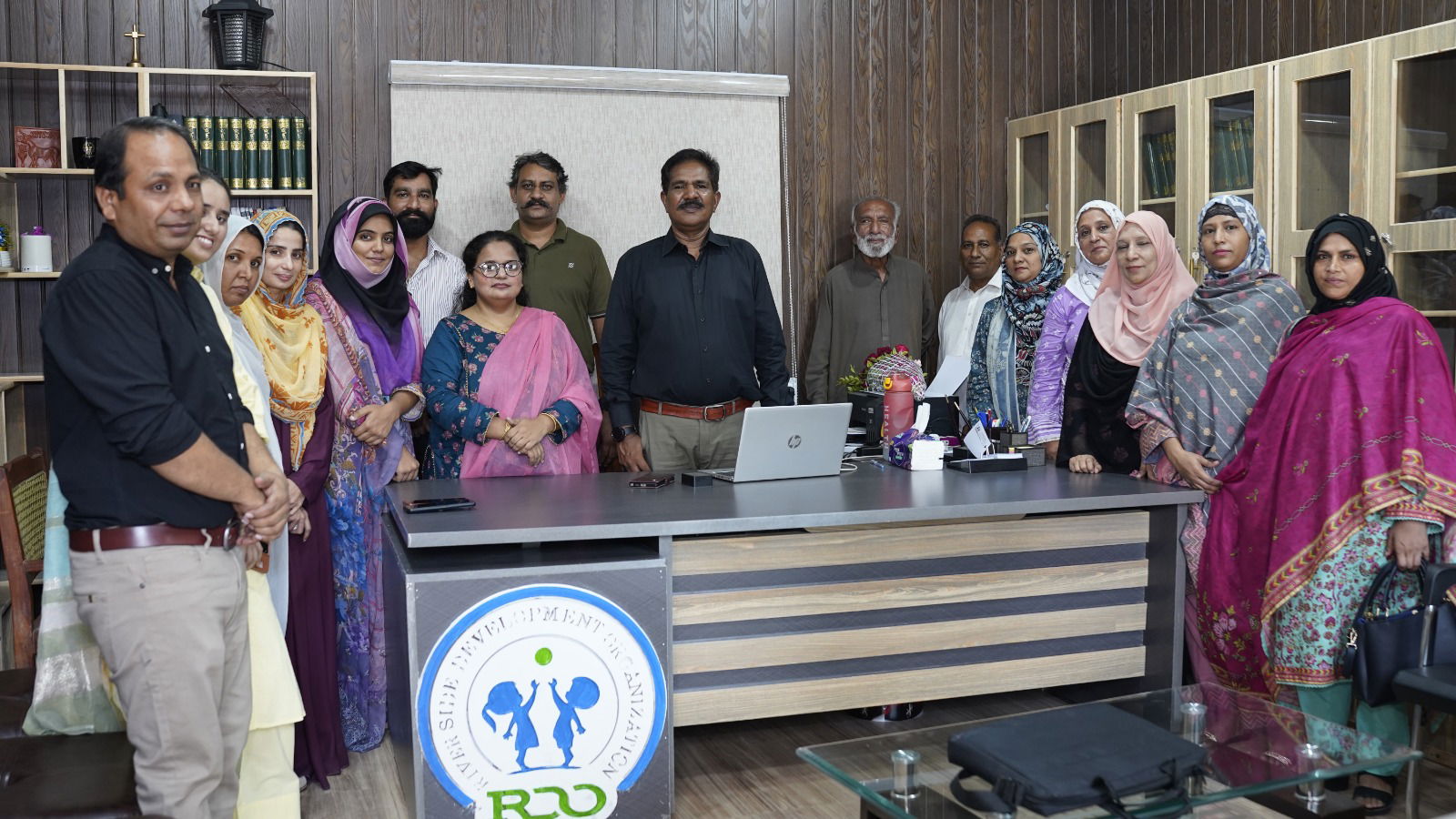Reducing Malnutrition through Community Empowerment in Sukkur, Sindh
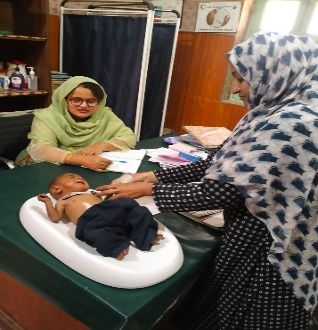
RDO contributed in reduction of prevalence of malnutrition among PLWs and under-five children in targeted district Sukkur through strengthened community ownership through CNGs, focal points, and women entrepreneurs. It has improved women’s economic empowerment through sustainable nutrition enterprises. The efforts contributed in enhanced policy influence through research, advocacy, and academia partnerships for sustainable systems for screening, referral, and awareness beyond project timelines.
- The Sukkur project formed 40 CNGs, developed localized IEC material, and empowered community focal points, demonstrating increased community ownership and knowledge retention.
- The pilot EFP model empowered women to run small-scale enterprises while promoting health. Women gained income, enhanced leadership, and improved community trust.
- The Sukkur initiative screened thousands of children and PLWs, provided referral linkages with OTP/NSCs, and strengthened connections with health authorities, setting a replicable model.
- RDO collaborated with academia, hosted debates, and supported CSO-academia exchanges. These experiences demonstrated the value of bridging research with practice.
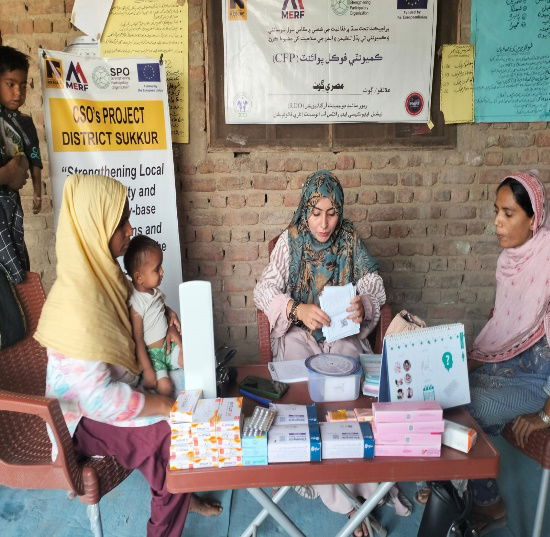
Why This Project?
Sindh has some of the highest rates of malnutrition in Pakistan. 40% of children under five are stunted 17% suffer from wasting 29% are underweight 56% girls are anemic 25–30% of pregnant and lactating women face acute malnutrition These alarming figures are driven by poverty, limited healthcare, poor dietary knowledge, and lack of preventive interventions. In UC Long Bhatti and Patni, more than 50% of areas remain uncovered by Lady Health Workers (LHWs), leaving thousands without basic nutrition support. RDO’s long-standing presence in these communities, with over 100 women’s Self-Help Groups and strong local networks, makes it uniquely positioned to respond with community-led, sustainable solutions.
Key Achievements So Far
1. Community Awareness & Engagement
- IEC Material Development: Posters, pamphlets, and pictorial guides on nutrition, local food values, and referral systems were developed in the local language. Distributed at households, focal points, community groups, and health facilities.
- Community Nutrition Groups (CNGs): 40 groups formed, each with 10–15 members (teachers, health workers, religious leaders, and social activists). These groups are actively raising awareness and building ownership of nutrition activities.
- CNG Meetings: Over 280 meetings held to discuss progress, address challenges, and strengthen engagement.
2. Community Focal Points & Support for PLWs
- 40 Focal Points established in local households, serving as hubs for screening, awareness, and referral.
- Awareness sessions with PLWs on pre/post-natal care, nutrition using local resources, and health practices are ongoing.
- International Days Celebrated: Events on Women’s Day, Children’s Day, World Hygiene Day, World Food Day, and Breastfeeding Week mobilized communities and showcased progress.
3. Women’s Empowerment through Enterprises
- 10 pilot enterprises launched at focal points, equipped with health screening tools (BP apparatus, glucometers, hemoglobin meters, MUAC tapes, weighing machines).
- Women entrepreneurs now provide screening services and sell essential items, generating income while promoting community health.
- Linkages established with local flour mills to support fortified flour demand.
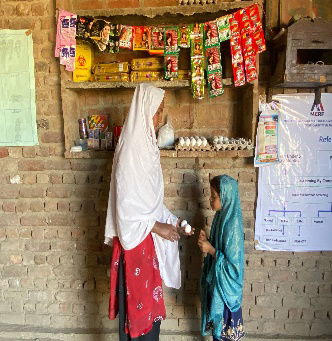
4. Screening & Referral Services
- Training sessions conducted for field teams, CNG members, focal points, and practitioners on identifying malnutrition.
- Screening kits provided across focal points and practitioners.
- Regular screening of PLWs and children (6–59 months) underway, with referrals to health facilities and OTP/NSC centers.
- Strengthened referral systems with health facilities, LHWs, NGOs/INGOs, WFP, and UNICEF.
- So far RDO has reached to over 5000 children under age 6-59 months and 4800 PLWs along with communities’ awareness to thousands of women as well.
5. Collaboration & Advocacy
- Active participation in District Coordination Committee for Nutrition (DCCN) meetings.
- University debates and networking events organized in partnership with academia and civil society.
- Membership of Sindh Nutrition Alliance (SNA) and Scaling up Nutrition Civil Society Alliance (SUNCSA) Pakistan as well.
- Peer Support Groups & Community Health Committees (CHCs) strengthened with refresher trainings and ongoing mentoring.
- Established an E-Learning Corner for frontline workers in collaboration with MERF.
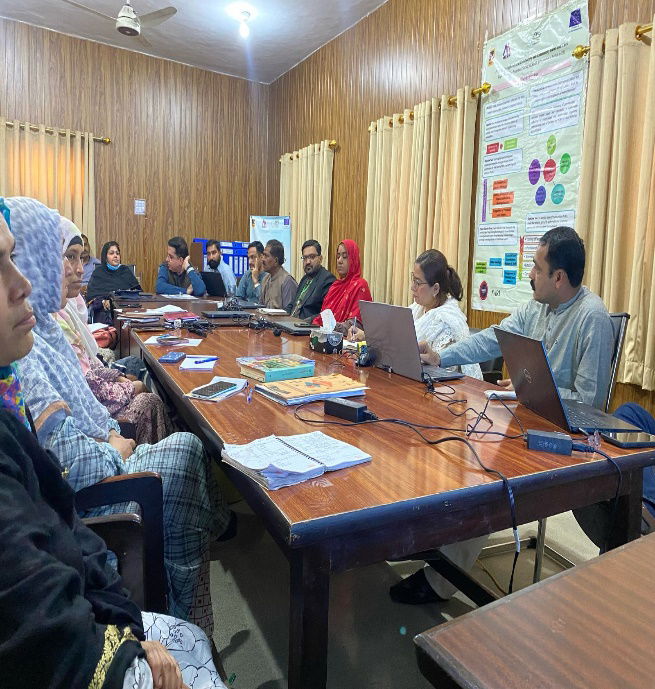
Post No Cost Extension Activities (Ongoing)
- Continued screening, referral, and awareness sessions at community level.
- Mentorship of master trainers to deliver additional nutrition sessions.
- Joint events with universities for awareness, research, and youth engagement, RDO signed MOU with BNBWU refers to the Begum Nusrat Bhutto Women University Sukkur, and RDO stands for the Riverside Development Organization; the two organizations signed a Memorandum of Understanding (MoU) on September 4, 2025, to create partnerships that will provide BNBWU students with exposure to community-based projects, particularly in public health and social development, and enable them to contribute to practical solutions.
- Quarterly CHC meetings to strengthen linkages with healthcare providers.
- Community-based initiatives including adolescent nutrition champions, peer group trainings, and advocacy events.
- Preventive heatstroke awareness sessions introduced as seasonal health measure.
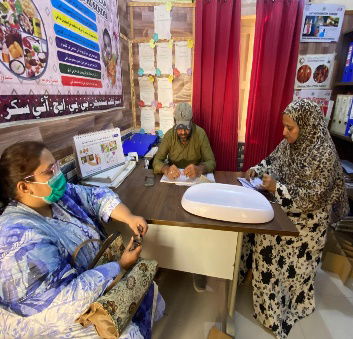
Impact So Far
- Thousands of community members reached through awareness campaigns.
- PLWs and under-5 children screened and referred for treatment.
- Women entrepreneurs empowered to sustain nutrition interventions.
- Stronger community ownership and linkages between CSOs, academia, and health systems.
Riverside Development Organization (RDO), is sub-Grant partner from Sep 2024 to Oct 2025, under the project. RDO’s Commitment RDO will continue to leverage its community networks, partnerships, and pilot successes to scale impact from local interventions to district- and province-level influence. With sustained collaboration between communities, government, academia, and development partners, RDO aims to ensure lasting improvements in nutrition and health for future generations.
